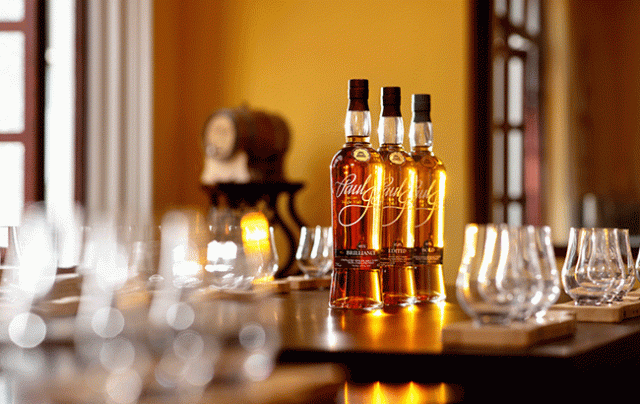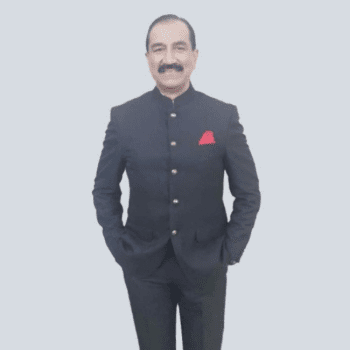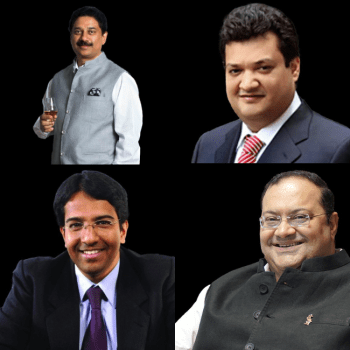Indian Malt Whisky Association officially launches
By Miona MadsenIncorporated in July 2024, the Indian Malt Whisky Association (IMWA) was officially launched on 20 March 2025, establishing unified standards for Indian single malt whiskies.

The new trade body aims to preserve, promote, and protect India’s malt whisky heritage while positioning India alongside global whisky giants with associations such as the Scotch Whisky Association (SWA), Irish Whiskey Association (IWA), and Japan Spirits & Liqueurs Makers Association (JSLMA).
Based in New Delhi, the IMWA is led by founder director general Dr Rajesh Chopra, with four founding members representing the biggest Indian single malt producers.
The founding members are Paul P John from John Distillers; Abhishek Khaitan from Radico Khaitan; Rakshit N Jagdale from Amrut Distilleries; and Siddhartha Sharma from Piccadily Distillers, makers of Indri.
By fostering innovation and excellence, the association aims to reshape industry portfolios and encourage premiumisation within the category.
The IMWA is dedicated to ensuring that the Indian whisky industry produces world-class malt whiskies that can compete with international brands while promoting ‘Made in India’ labels. As a unified voice for the sector, it seeks to define the category in India and worldwide.
John, chairman of IMWA and chairman and managing director of John Distilleries, stated: “IMWA marks the dawn of a new era for Indian single malts, where tradition meets innovation. IMWA is dedicated to elevating Indian single malts to the global stage and redefines the commitment of Indian single malts to quality and craftsmanship.”
While the association encourages the growth of new malt distilleries in India, it remains vigilant against misrepresenting inferior Indian-made foreign liquor (IMFL) or extra neural alcohol-based (ENA) products as Indian single malts.

Chopra said: “We hope to see many more malt distilleries emerge across India, expanding the category and reinforcing its reputation for quality. The IMWA’s commitment is to ensure that Indian malt whisky is respected as one of the finest in the world.
“We have observed the launch of so-called Indian single malts by companies lacking proper malt distilleries. Such practices undermine the credibility of the category. It is critical to uphold the hard-earned reputation of Indian malt whisky on the global stage.
The IMWA focuses on building strong partnerships with governments and opinion leaders to achieve its goals.
Guidelines
To ensure the authenticity of Indian single malts and blended malts, the IMWA has defined a key qualification criteria.
The new guidelines dictate that Indian single malt whiskies must be produced from 100% malted barley at one distillery using copper pot stills. The spirit must exit the still at no higher than 60% ABV.
Additionally, to qualify to be labelled as a single malt, the whisky must be matured for a minimum of three years in wooden oak barrels of less than 700 litres capacity. Nothing can be added to alter the cask, including wooden chips.
Indian single malts must be crafted using only three ingredients: malted barley, pure water, and yeast. Caramel colour and demineralised water may be added before bottling.
Indian whiskies that qualify as blended malt (pure malt) or 100% malt whisky must be a mixture of two or more malts from different distilleries.
All whiskies labelled as Indian single malt must be distilled, matured, and bottled in India.
These new guidelines for Indian single malt whisky align with the qualification criteria for Scotch single malt whisky established by the SWA, which have been globally accepted as the norm and adapted to each country’s origin.
But unlike many other countries, the new standards don’t specify a minimum bottling ABV, but the alcohol content will be different according to specific states.
Furthermore, due to warm and alternative climates in different states, the IMWA sets maximum percentage evaporation guidelines per year.
According to Chopra, “protecting the category’s integrity is essential for sustaining its global acceptance and growth”.
Chopra said: “Defining guidelines, securing certifications, trademarks, geographical indications (GI), and intellectual property rights (IPR) are essential steps to build trust in the authenticity and quality of Indian malt whiskies.
“By establishing these standards, we signal to the world that India produces malt whisky of unparalleled quality and distinction.”
Founding members
The IMWA’s founding members include some of India’s most prominent malt whisky producers. Together, these members represent a substantial share of the revenue generated from malt whisky production in India.

One of the founding members, Khaitan, managing director of Radico Khaitan, commented: “Every sip of an Indian single malt whisky mirrors an age-old tradition and grandeur with unparalleled passion. As we come together to form this association, we are not just preserving the rich heritage but also safeguarding a cultural treasure that reflects the spirit of our country.
“With an aim to protect and elevate the exquisite craft of Indian single malt, we at Rampur Distillery stand committed to stewarding, protecting, nurturing, and elevating this legacy, ensuring its rightful place on the world stage.”
Jagdale, managing director of Amrut Distilleries, celebrated the launch of the association: “Amrut Distilleries is proud to announce that it will be a founding member of the IMWA. As pioneers of Indian single malt, we believe that the time is indeed right to foster collaboration that elevates the global perception of Indian single malt whisky.
“The Indian provenance displayed through the single malt category has garnered global recognition. IMWA will echo the common sentiment of Indian distillers and also serve as the right platform to showcase the rich legacy of Indian craftsmanship to the world.”
Sharma, a spokesperson for Piccadily Distilleries, said: “We are honoured to be a part of this landmark initiative that marks a new chapter for Indian malt whisky on the global stage. The IMWA will not only strengthen India’s position in the world whisky market but also set new benchmarks of quality and authenticity.
“This collective commitment will redefine Indian single malts as symbols of excellence and craftsmanship.”
Related news
Scaling up: Japan's new wave of whisky distilleries
